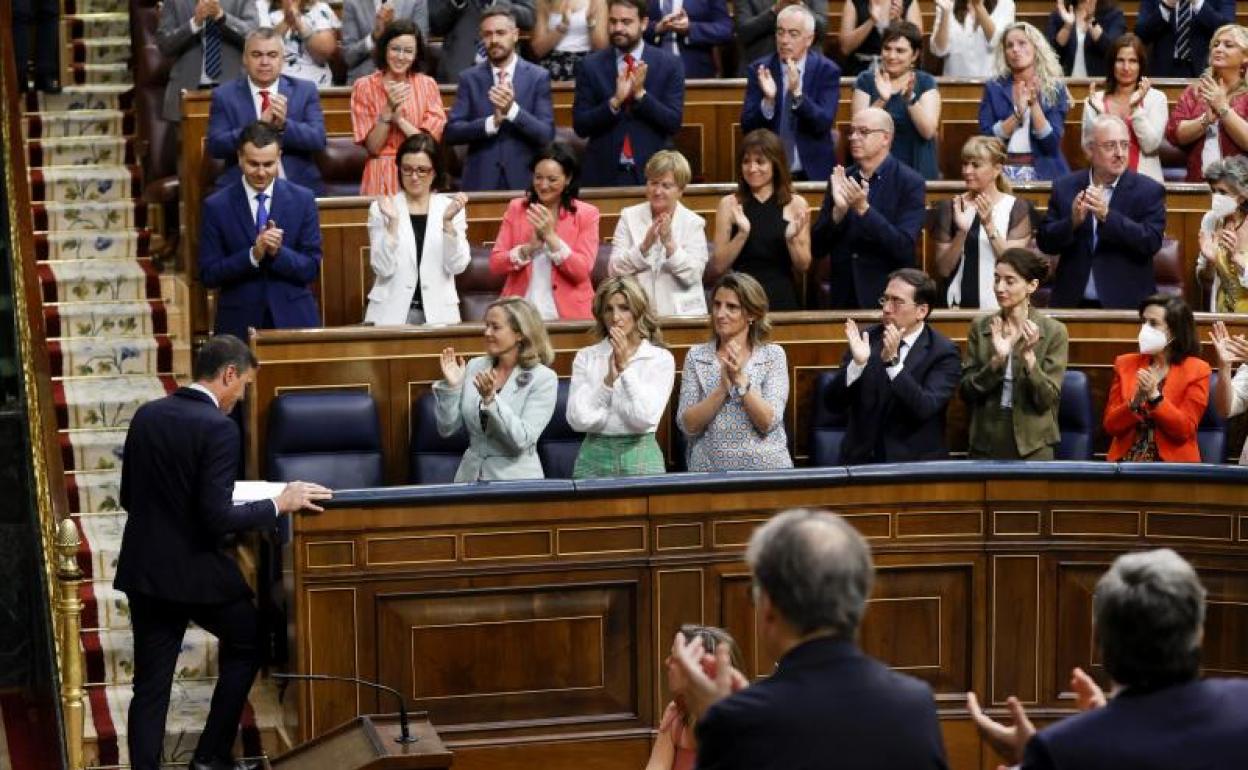
Sections
Highlight
Sections
Highlight

Paula de las Heras
Madrid
Tuesday, 12 July 2022, 18:26
Spanish prime minister Pedro Sánchez faced the first debate on the state of the nation this Tuesday (12 July) as if it were a new start, a chance to reconnect with the Spanish people and with his political allies, who had been demanding a shift to more left-wing policies.
With the PSOE’s setback in the Andalusian elections on 19 June clearly in mind, Sánchez admitted that difficult times lie ahead but said he would do everything in his power to defend “the social majority” and would take decisions that Spain needs to be taken, even though they are difficult.
“I will continue on this path, no matter what it costs and whatever the cost to me,” he said.
Sánchez explained that many variables could make high inflation complicate people’s lives even more, including how the war in Ukraine evolves, how the US and German economies respond and what role China may play. However, he also announced new measures which will go beyond those approved in the second anti-crisis law which will be put to the vote on Thursday
These measures include a two-year tax on financial institutions, which will raise around 1.5 billion euros, in addition to the tax already announced on major electric, gas and fuel companies on their extraordinary profits in 2022 and 2023. “This government will not allow a lot of people to suffer for the benefit of a few others,” he said.
The government is also to give a 100% discount on Renfe rail travel passes for local services in large towns and cities and on medium distance trains. Until now, the discount has been 50%, but it has been increased to encourage people to use public transport instead of their own vehicles in the face of high fuel prices.
Sánchez also announced that students over the age of 16 who already get a grant will now receive an extra 100 euros, payable between September and December this year.
He also defended the government’s Defence policy, especially regarding the Russian invasion of Ukraine, in a dig at coalition party Unidas Podemos but without mentioning them by name.
“They forget that not taking part in the war effort would not free us of the consequences of the war, it would isolate us from the rest of the countries with whom we share values and interests and would leave us to deal with the problems on our own,” he said.
“Nearly 90 years ago the decision of the allies not to intervene in Spain condemned us to four decades of regression and fascist dictatorship. Now, destiny has given us the chance to be on the right side of history,” he added.
Publicidad
Publicidad
Publicidad
Publicidad
Esta funcionalidad es exclusiva para registrados.
Reporta un error en esta noticia

Debido a un error no hemos podido dar de alta tu suscripción.
Por favor, ponte en contacto con Atención al Cliente.

¡Bienvenido a SURINENGLISH!

Tu suscripción con Google se ha realizado correctamente, pero ya tenías otra suscripción activa en SURINENGLISH.
Déjanos tus datos y nos pondremos en contacto contigo para analizar tu caso

¡Tu suscripción con Google se ha realizado correctamente!
La compra se ha asociado al siguiente email
Comentar es una ventaja exclusiva para registrados
¿Ya eres registrado?
Inicia sesiónNecesitas ser suscriptor para poder votar.